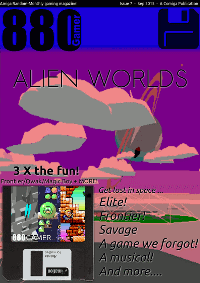In my last post I mentioned that I had to employ some ugly hacks in the boot firmware for my ZPU project, to make sure certain structures ended up in SDRAM rather than the initial Boot ROM.
To illustrate the problem let’s look at a minimal test program:
short inconvenience;
int main(int argc,char **argv)
{
inconvenience=0x0123;
return(0);
}
This little program declares a 16-bit word global variable, and then writes to it. The assembly output produced by
zpu-elf-gcc -Os -S bsstest.c
is as follows:
.file "bsstest.c"
.text
.globl main
.type main, @function
main:
im 291
nop
im inconvenience
storeh
im 0
nop
im _memreg+0
store
poppc
.size main, .-main
.comm inconvenience,2,4
.ident "GCC: (GNU) 3.4.2"
Note the storeh instruction half way down. That’s the source of my problem. I’ve implemented storeh in hardware for SDRAM, but not for the BlockRAM-based Boot code, and I’d really like to avoid doing the latter if possible, because doing a 16-bit write to a 32-bit wide RAM is going to be messy and eat up logic elements. The boot code is also rather on the large side, so it would be nice to avoid storing unitialised data in there at all if possible.
Continue reading →

